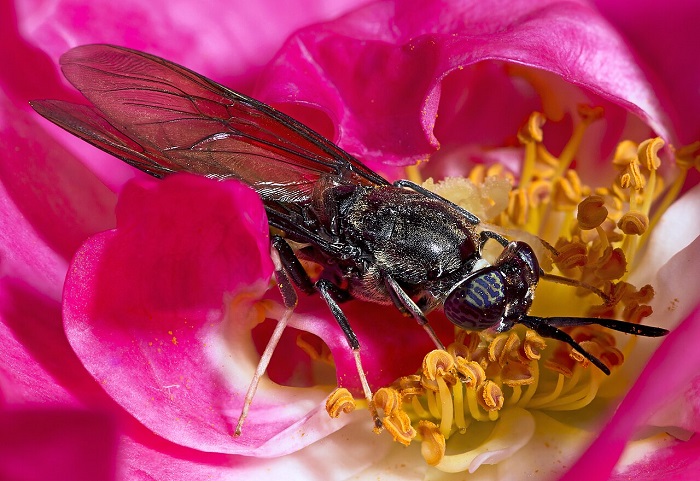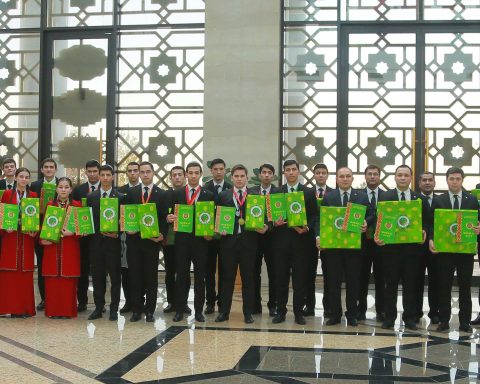The Biotechnology Laboratory of the International Scientific and Technological Park of the Academy of Sciences of Turkmenistan is conducting research on insects as a potential protein source.
One focus is the black soldier fly (Hermetia illucens), a small fly whose larvae are widely used as animal feed.
“The growing demand for alternative protein sources has prompted us to explore the potential of insect-derived protein,” said Altyn Rakhmanova, head of the Biotechnology Laboratory, in an interview with the Neutral Turkmenistan newspaper. “The black soldier fly, a species thriving in warm climates, is particularly promising. Our lab has successfully bred the first generation of black soldier flies and produced high-quality protein from their larvae.”
The laboratory is investigating the adaptability and breeding prospects of the black soldier fly in local conditions.
According to experts from IPIFF (The International Platform of Insects for Food and Feed), by 2030 the global protein market will mainly consist of insects. One of its promising species is rightfully the black soldier fly, which is twice as large as an ordinary fly and does not pose a danger to humans.
The larva of the black soldier fly contains about 40% amino acids, which have a beneficial effect on the growth and development of farm animals and birds and confirm the possibility of using dry larvae as a feed additive. It is also a good source of proteins, calcium, and B vitamins.
In addition to protein, black soldier fly larvae produce other useful products – fat and chitin, which have a wide range of applications from medicine and cosmetics to household use in the form of soap, as well as for wastewater treatment.
Laboratory analyses at the International Science and Technology Park revealed that larvae fed on fruit and vegetable waste contain 49.37% protein, 22% fat, and 21.23% calcium. The primary lipid component is lauric acid and its derivatives, known to inhibit viruses such as HIV and measles, as well as certain bacteria and protozoa.
Black soldier fly humus is rich in nitrogen, phosphorus, potassium, and micronutrients essential for plant growth. Its excellent structure improves soil quality and water retention, mitigating environmental impacts.
Turkmen scientists have confirmed the black soldier fly larvae as a valuable source of protein, fat, and minerals, making it a suitable and sustainable alternative to fishmeal in animal feed.







